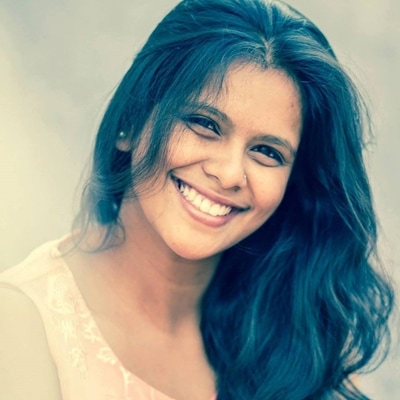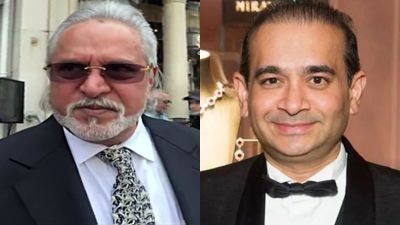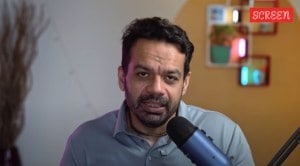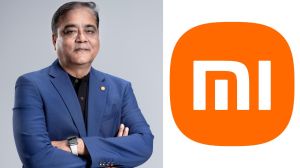Anonna Dutt is a Principal Correspondent who writes primarily on health at the Indian Express. She reports on myriad topics ranging from the growing burden of non-communicable diseases such as diabetes and hypertension to the problems with pervasive infectious conditions. She reported on the government’s management of the Covid-19 pandemic and closely followed the vaccination programme. Her stories have resulted in the city government investing in high-end tests for the poor and acknowledging errors in their official reports. Dutt also takes a keen interest in the country’s space programme and has written on key missions like Chandrayaan 2 and 3, Aditya L1, and Gaganyaan. She was among the first batch of eleven media fellows with RBM Partnership to End Malaria. She was also selected to participate in the short-term programme on early childhood reporting at Columbia University’s Dart Centre. Dutt has a Bachelor’s Degree from the Symbiosis Institute of Media and Communication, Pune and a PG Diploma from the Asian College of Journalism, Chennai. She started her reporting career with the Hindustan Times. When not at work, she tries to appease the Duolingo owl with her French skills and sometimes takes to the dance floor. ... Read More
IRDAI lifts age limit on health insurance: Here’s how senior citizens need to understand coverage, premiums and exclusions
Considering the risk and vulnerability among the elderly are higher, know how to read between the lines, say experts.
 Accessing health insurance for the elderly is a tangled challenge rather than the convenience it is meant to be. (Express Photo by Praveen Khanna)
Accessing health insurance for the elderly is a tangled challenge rather than the convenience it is meant to be. (Express Photo by Praveen Khanna)For Dr Akash Jaiswal, keeping up with the clauses of insurance plans while treating his patients is a challenge. “There are many ifs and buts. Sometimes after prescribing a test, you come to know it is not covered by a policy. Or there are limits to cost reimbursements and the number of days one can be admitted — this is a challenge for the elderly because they tend to need longer hospital stays. There should be policies that provide comprehensive coverage, including services such as preventive health check-ups and immunisation,” says the geriatrician, a healthcare provider for older people. Despite working at Fortis Hospital, Gurugram, he himself has had difficulties in getting the right cover for his parents.
Accessing health insurance for the elderly is a tangled challenge rather than the convenience it is meant to be. Considering their risk and vulnerability are higher, with most having a pre-existing condition, policies have low coverage, high premium and long waiting periods. Then there are other deterrents like caps on treatment costs according to specific diseases, room rent restrictions, caps on pre- and post-hospitalisation care, OPD visits and so on. With a heavy burden of out-of-pocket expenses, most of the elderly even give up treatment protocols midway. Now that the Insurance Regulatory and Development Authority of India (IRDAI) has asked insurance companies to offer their usual health policies to 65-plus citizens, can they become more accommodative?
HOW TO READ THE FINE PRINT
While most health coverage policies come with the fine print, those for the elderly come with more riders on co-payment and cost-sharing despite higher premiums. The policy of a leading insurance provider, designed specifically for senior citizens over 60, provides a mere Rs 10 lakh coverage at an annual premium of around Rs 34,000. “The premium goes up to around Rs 45,000 if the patient has diabetes, hypertension and one stent in the heart. There will also be a 10 per cent co-payment,” says an agent from Policy Bazar on being asked about a new health policy for a 68-year-old with pre-existing conditions. Co-payment is the percentage of the claim that the insured patient agrees to pay from their pocket irrespective of the claim amount. It usually varies from 10 per cent to 50 per cent.
 (Express Illustration by Abhishek Mitra)
(Express Illustration by Abhishek Mitra)
Comparatively, a healthy person in their 30s can avail a Rs 10 lakh cover at an annual premium of around Rs 10,000 with no co-pay. This is concerning given that the Longitudinal Ageing Study of India (LASI) found that 75 per cent Indians live with at least one chronic condition.
IN FACTS AND FIGURES
Most policies for the elderly come with conditions of cost-sharing, offering 50 per cent co-pay or Rs 50,000 as deductibles. So the person would have to pay 50 per cent of their hospital bills with the insurer paying the rest or cough up Rs 50,000 for their healthcare before the insurer starts paying out. Additional top-ups have to be purchased in order to do away with the cost-sharing conditions, inflating the insurance premiums further.
The policies also come with sub-limits for specific procedures or medical conditions. One of the policies caps payments for robotic surgeries at Rs 1 lakh, unless they are intended for certain conditions like cancers. Yet robotic surgeries limit post-operative complications and hasten recovery. Another policy caps pain management costs at 20 per cent of the total sum insured. This again is needed by the elderly.
Reading exclusions is extremely important. Policies do not include newer surgical methods like cyberknife (non-invasive radiosurgery) and radio-frequency ablation (where radiofrequency waves are delivered to certain nerves, with the goal of interrupting pain signals to the brain). Neither do they factor in external prosthesis such as hearing aids, BP monitors or pulse oximeters. Most policies exclude diagnostics like MRI (which scans changes in organs in detail) or colonoscopy (a tube probe that scans your large intestine) and supplements (neutraceuticals) that can be bought without a prescription. “Very few policies cover physiotherapy essential for mobility among the elderly,” says Dr Jaiswal. The policies also do not provide global coverage for the elderly while offering the same to the young. So the former don’t choose to travel abroad.
Pankaj Arora, chief growth officer of an all-round elder support platform Emoha, has seen senior citizens struggle on their own, with their children located in other cities and countries. “Health policies need to provide a 360-degree continuum of care instead of just hospitalisation and include supportive services to maintain chronic conditions. The process should be simplified and made elderly-friendly,” he says. Although insurers are not allowed to discontinue coverage, they deny it to a person if the patient has two stents in their heart, explains portfolio manager Gaurav Shrivastava.
NO OUTPATIENT, PREVENTIVE CARE
One of the biggest drawbacks of health insurance policies is that they do not cover outpatient visits. “There is a need to keep an eye on all health parameters because derangement in one, say blood sugar levels, can have a cascading impact on overall health status,” says Dr Jaiswal.
While top-ups can be bought to cover OPD costs, they may not be beneficial, says Shrivastava. “The patient would end up paying around Rs 20,000 a year but may not end up going to the doctor as many times. Top-ups then would be a waste,” he says.
When it comes to terms for hospitalisation, the elderly are usually admitted for heart and kidney disease when they are equally prone to falls and bone fractures. Dr Jaiswal argues for inclusion of preventive care like certain scans and vaccination. “This would help insurers because shots for flu and pneumonia are likely to bring down hospitalisation. Preventive scans such as Dexa can help improve bone health and prevent falls,” he says. Arora advocates for mental health support in the elderly as loneliness and depression are increasingly becoming big challenges for them. In the end, why should we burden the elderly and not make things seamless for them?
Photos





- 01
- 02
- 03
- 04
- 05


























